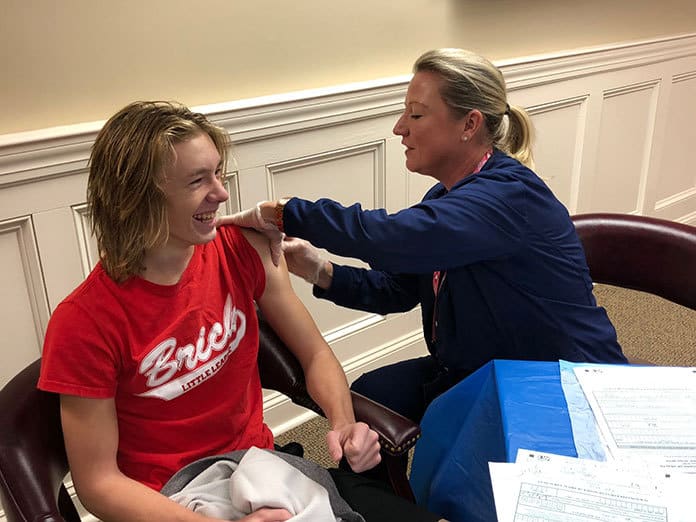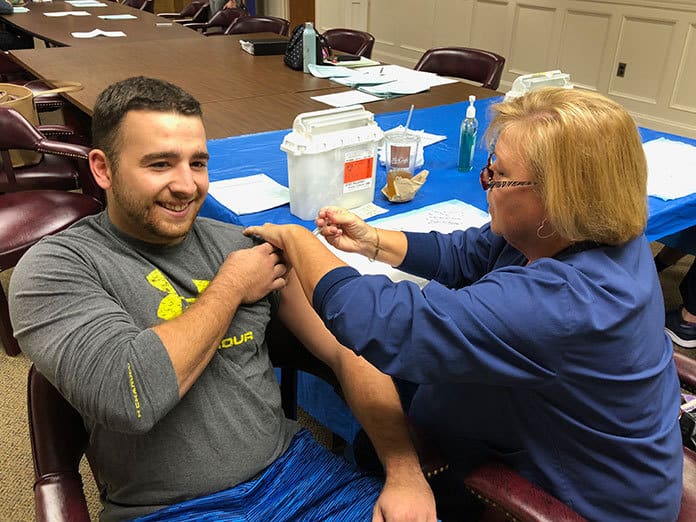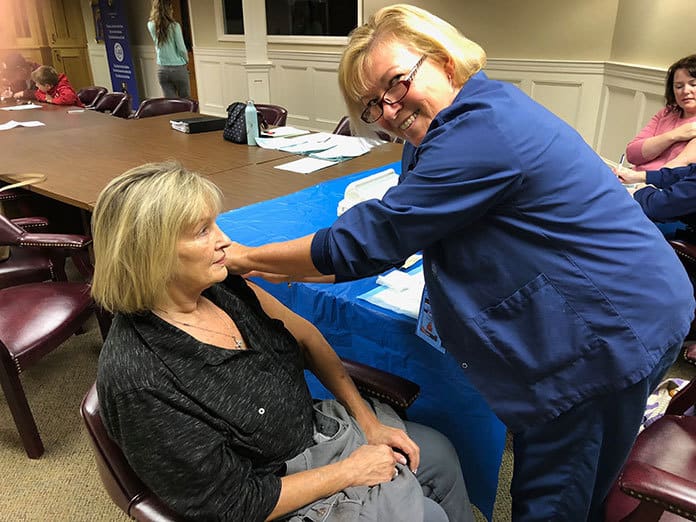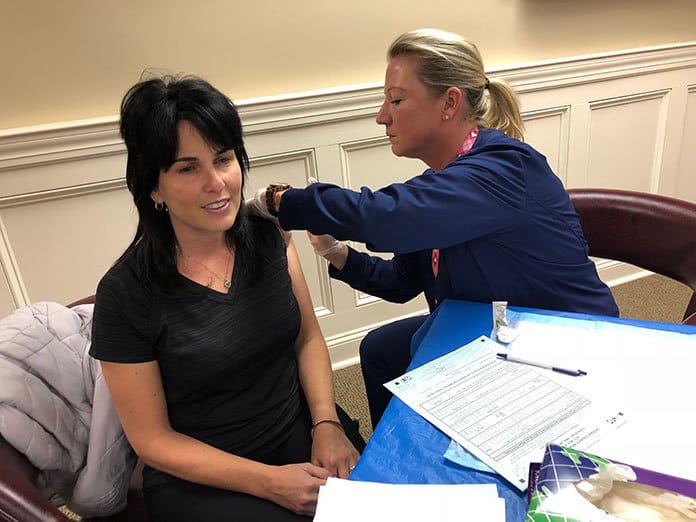
OCEAN COUNTY – The flu vaccine does not cause the flu since it contains influenza viruses that have been killed, and are therefore unable to infect your body, said Jennifer Crawford, an epidemiologist who oversees the communicable disease department at the Ocean County Health Department (OCHD).
It takes the vaccine two to four weeks for antibodies to develop in the body and provide protection against the flu, so if someone has been exposed before their shot, they could get the flu, she said.
Also, the vaccine, usually given as a quadrivalent vaccine, only protects against four strains of the flu, and there are dozens of strains out there, Crawford said.
“So if you come into contact with a different strain that’s in the vaccine, you could get the flu,” she said.

That’s true, said Dr. Philip Angelo, a family physician from Brick who works for CentraState in Colts Neck, but getting the flu shot offers protection against strains that aren’t even in the vaccine.
He said there is documented evidence that the flu shot makes the symptoms of different strains of the flu milder, even if it’s not an exact match, reducing the both the need for hospitalization and mortality rates.
If you have aches and pains after the flu shot, it’s just your immune system “charging up and learning how to fight the flu,” Dr. Angelo said.
“There are a number of important reasons to get the flu shot. First, it kills up to 30,000 people a year in the United States, and that number is not just old and frail people,” he said. “Younger people are also getting sick and dying from the new flu strains.”
Also, the flu knocks you down for a week, and for a lot of people, missing a week of work could present multiple hardships, Dr. Angelo said.
“Getting your flu shot prevents you from spreading it to other people, and some people – like those with advanced lung disease, or people on chemo – if they get the flu, they could die,” he said.

“Get the shot now before it starts coming around, even if you’re young and healthy,” Dr. Angelo said. “I get my flu shot every year, and I have for the past 20 years.”
Flu viruses are constantly changing. The composition of U.S. flu vaccines is reviewed annually and updated as needed to match circulating flu viruses, Crawford said.
“We vaccinate for flu viruses that we expect to be circulating that season based on other parts of the world that experience winter when we are not, she said.
While Crawford said it’s too soon to comment on the efficacy rate of this year’s quadrivalent vaccine, people who got last year’s vaccine were 40 to 60 percent less likely to get the flu, she said.
“It’s better to get vaccinated early in the fall. We started our flu clinics in early October because we wanted people to start getting it before the influenza starts circulating,” she said.
The OCHD offers multiple clinics at multiple locations throughout the fall until mid-December. Their public information officer, Brian Lippai, said it depends on an individual’s health insurance, but most co-pays are about $20.

The vaccinations are free to those who are enrolled in Medicare Part B.
If an individual has a financial hardship, Lippai said to talk to the clinic manager who would discretely discuss getting the shot for free on a case-by-case basis.
The OCHD recommends that everyone over the age of six month should get vaccinated against the seasonal flu every year. The shots are especially important for pregnant women and people with chronic diseases.
For more information, including information about upcoming flu clinics, visit ochd.org or call 732 341-9700 or 800 342-9738 extension 7604.







